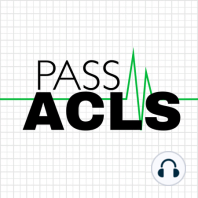6 min listen

Hydrogen Ions as a H&T Reversible Cause of Cardiac Arrest
Hydrogen Ions as a H&T Reversible Cause of Cardiac Arrest
ratings:
Length:
5 minutes
Released:
Mar 7, 2024
Format:
Podcast episode
Description
Hydrogen ions is on one of the Hs in ACLS's H&T reversible causes of cardiac arrest. When considering hydrogen ions as a cause, what we’re looking at is the patient’s pH, or acid/base balance, and conditions that affect it.The body's normal pH. Using patient history, ABGs, & labs to determine acidosis or alkalosis. Common conditions/causes that may lead us to suspect acidosis. Common conditions/causes that may lead us to suspect alkalosis. Correcting acidosis by changing the rate of ventilations. The indications, dose, and considerations for use of Sodium Bicarbonate. Treatment of alkalosis depends on the type (metabolic or respiratory) and is aimed at correcting the underlying cause. Other podcasts that cover acid/base balance and conditions that cause acidosis or alkalosis can be found on the Pod Resource Page at PassACLS.com.Connect with me:Website: https://passacls.com@PassACLS on X (formally known as Twitter)@Pass-ACLS-Podcast on LinkedInGive back - buy Paul a bubble tea hereGood luck with your ACLS class!
Released:
Mar 7, 2024
Format:
Podcast episode
Titles in the series (30)
Defibrillation & Synchronized Cardioversion Energy Settings by Pass ACLS Tip of the Day